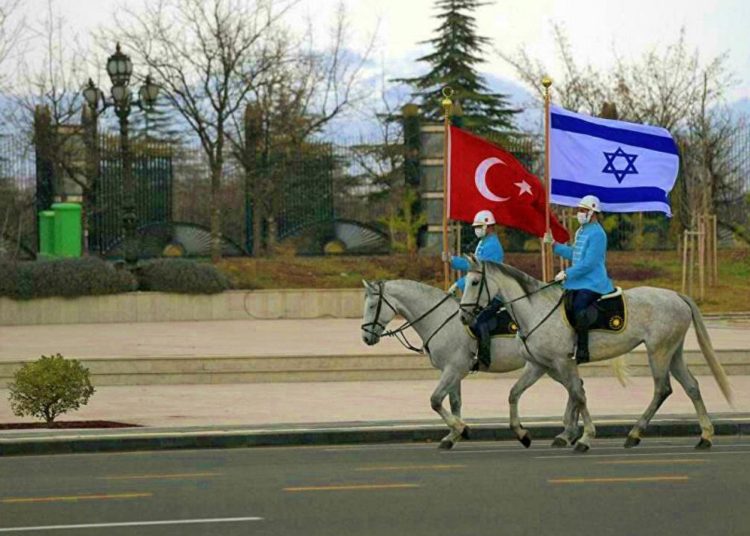Levent Kenez /Stockholm
After the rapprochement between Turkey and Israel, which started last year and accelerated with the visit of Israeli President Isaac Herzog to Ankara in March, Turkey abandoned its aggressive and accusatory language towards Israel and its security operations against the Palestinians.
A Nordic Monitor study that included President Recep Tayyip Erdoğan’s social media posts and speeches, Ministry of Foreign Affairs statements and pro-government media stories shows that the Islamist government is being careful not to directly target the Israeli authorities.
President Erdoğan in the past frequently used harsh expressions such as “Israeli oppression,” “Israeli terrorism” and “terrorist state” in his speeches on Palestine and Gaza.
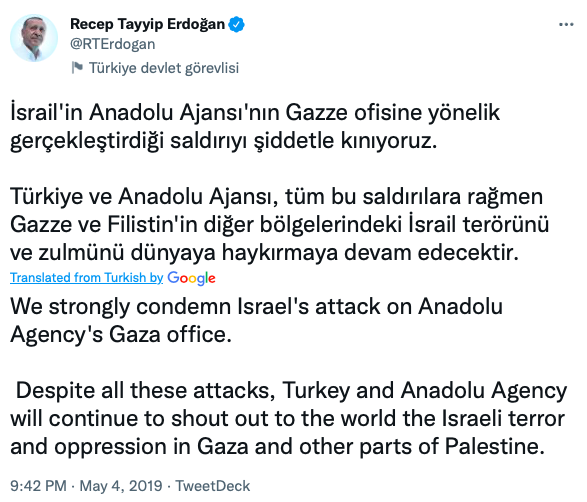
In a tweet on April 19 Erdoğan said when he spoke with President Herzog, he described the violence at the Al-Aqsa Mosque in Jerusalem as “incidents caused by some radical Israeli groups and security forces.” An examination of the Turkish wording of his message shows that he used very careful language and avoided blaming the Israeli authorities.
However, in his speech at the United Nations General Assembly in September 2021, Erdoğan stated that as long as the persecution of the Palestinian people continued, it would not be possible for the Middle East to achieve lasting peace and stability, calling for an end to the Israeli policies of occupation, annexation and illegal settlement.
In another message on July 12, Erdoğan wrote that in a phone call he told President Herzog there was a great potential for cooperation in many fields between the two countries.
Erdoğan did not comment on the Israeli aggression in Gaza in August. For the Islamist Erdoğan, Israel was one of the important propaganda tools for use with his supporters. “The world leader who defended the ‘Palestinian cause’ in the most courageous way in the world” was one of the popular portrayals of Erdoğan by his ruling party people.
Likewise, the change in policy after the rapprochement was reflected in the statements made by the Turkish Foreign Ministry.
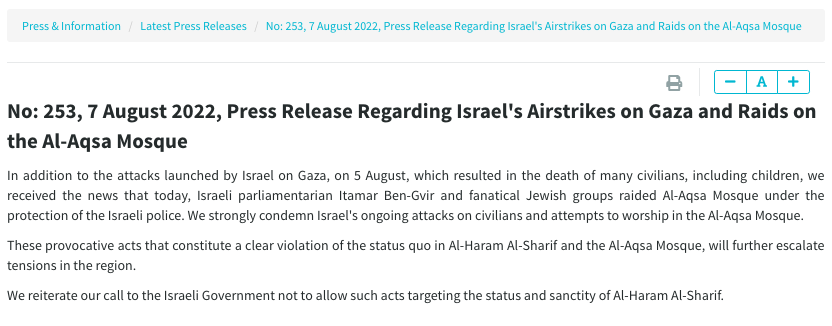
In a press release issued on August 7, while condemning Israel, the Ministry targeted radical Jewish groups and reiterated a call to the Israeli government not to allow such acts targeting the status and sanctity of Al-Haram Al-Sharif, or the Temple Mount, Jerusalem’s sacred esplanade.
In an April 2021 ministry press release titled “Regarding Israel’s Attacks on Gaza Strip and its Acts of Oppression Against the Palestinian People,” Israel was harshly condemned and the Israeli government was held responsible.
“Last night’s air strikes conducted on Gaza by Israeli combat aircraft constitute the latest example of the policies of aggression of the Israeli government. Israel has to stop its policies of aggression that undermine peace and stability in the region,” it said.
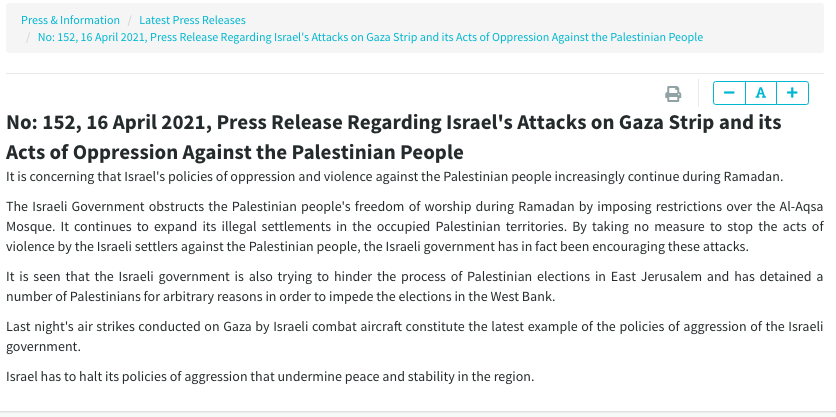
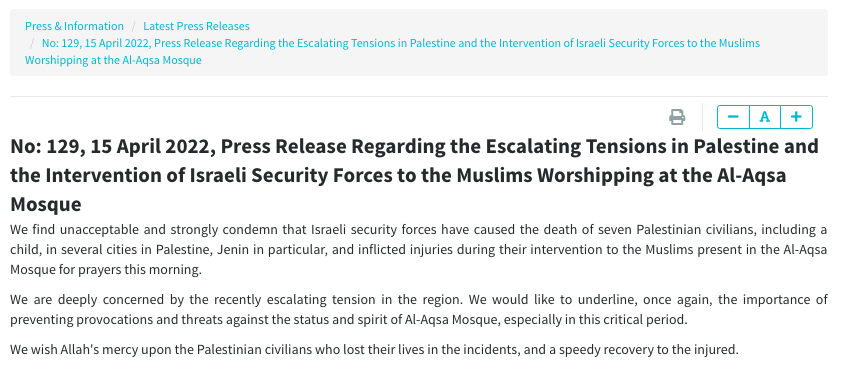
While civilian deaths are highlighted in news reports published by the pro-Erdoğan media, expressions such as “Murderer Israel” and “Israeli Oppression,” which were frequently used before, were not repeated. Compared to past coverage, the Israeli attacks seem to have been covered very little in the Sabah daily, known as the ruling party bulletin run by the Erdoğan family. The state-run Anadolu news agency now uses less inflammatory language in both its headlines and stories.

The Turkish opposition claims that the harsh policy towards Israel is never pursued the way Erdoğan has tried to present. When the Israeli navy killed nine Turkish and one Turkish-American pro-Palestinian activists in the Mavi Marmara flotilla in 2010, it sparked a diplomatic crisis as then-prime minister Erdoğan used the issue extensively as a political tool at domestic rallies. In 2011 Erdoğan announced that Turkey was suspending trade and military relations with Israel. However, the main opposition Republican People’s Party revealed that the Safran 1, which belonged to Erdoğan’s elder son Burak, sailed between Turkish and Israeli ports many times transporting cargo back and forth.
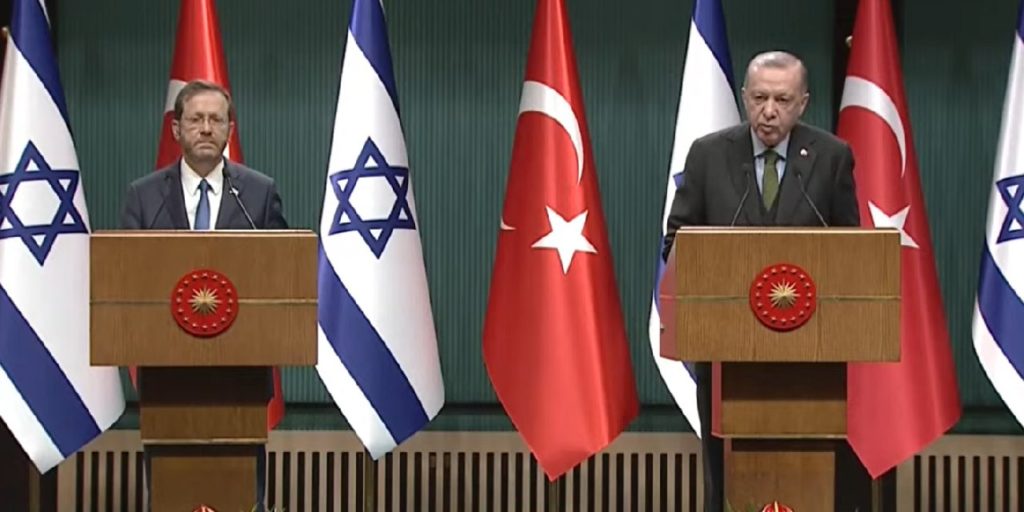
Ironically, in 2016 Erdoğan refuted his own argument and criticized the organizers of the Mavi Marmara flotilla, saying, “Did you ask the then-prime minister for permission to organize that aid campaign?”
At a press conference on Thursday, Temel Karamollaoğlu, the leader of Turkey’s Islamist opposition Felicity Party who is against the rapprochement with Israel, criticized the government’s silence towards recent Israeli attacks on Gaza and accused Erdoğan of betraying the Palestinians.

